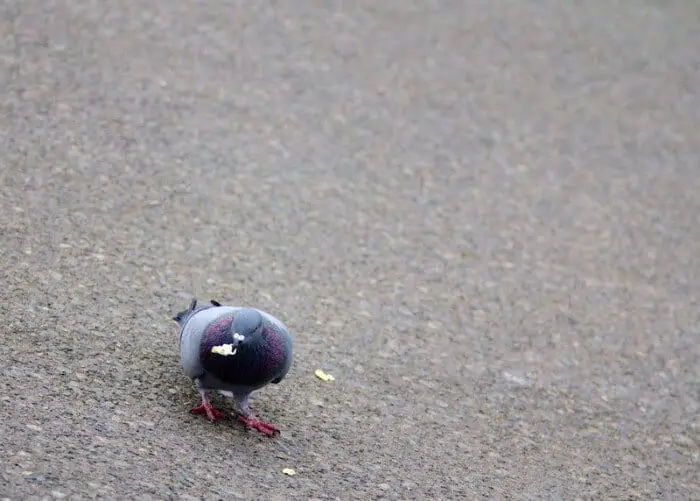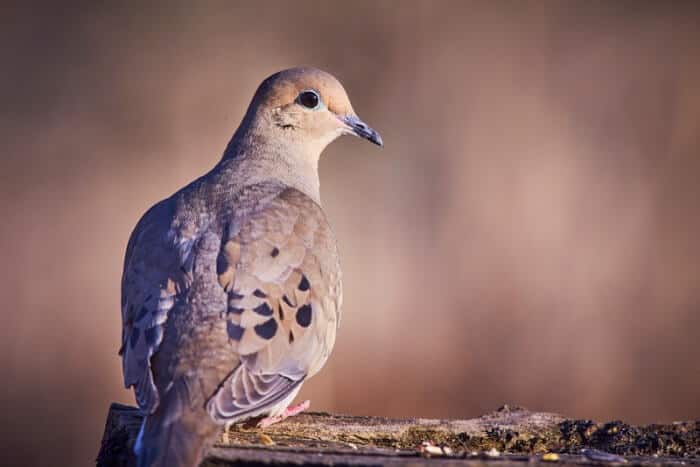If you have a pet pigeon, chances are that you want it to be as healthy as possible.
In addition to taking your bird to see a veterinarian on a regular basis, you should also be making sure your pet pigeon doesn’t have worms, which can cause health problems.
Our 5 Top Pigeon Wormers Are:
As an Amazon Associate I earn a small fee from qualifying purchases made through Amazon links at no extra cost to you. This helps us run the site – thanks for your support!
- Harkers 3-in-1 Soluble
- Worm Out Gel
- Moxidectin Concentrate
- Easimec Ivermectin
- Easifen Liquid Wormer
Because worms are fairly common in pigeons, you need to be prepared with a product that can get rid of those worms and ensure the good health of your pigeon.
It’s also a good idea to learn as much as you can about worms in birds so that you know what to expect and are ready to treat the issue if it occurs.
Use this guide for all the information you need, as well as some of the best pigeon wormers on the market.
Which Birds Get Worms?
The short answer for this is – all of them can get worms. Some species are more prone to them than others, and a bird’s living environment can help reduce the risk.
For example, a concrete floor in your pigeon’s enclosure may cut the spread of worms. However, since worms live in a bird’s gut, any bird can get worms.
How do Pigeons Get Worms?
It’s actually pretty easy for a pigeon to get worms.
They are spread through feces so if your pigeon comes into contact with droppings that are infested with worms, chances are it will get them too.
It takes about 14 days for a pigeon to be infective, but the worm infection can continue for many years.

Most of the time, a pigeon gets worms by foraging for food in an area that is infected. Pigeons can also get worms from some nesting materials, living with a new cage mate or from contact with wild birds.
Problems with Worms
While worms in pigeons are fairly common, it’s still something you should be concerned about. When these worms lay eggs in your pigeon’s digestive tract, they will eventually hatch and need nourishment.
That nourishment comes by sucking up the vitamins and minerals in your bird’s gut, leaving behind little in the way of nutrition for your pigeon.
This can lead to malnourishment and illness for your pet. Worms in large numbers can also lead to tissue damage inside your pigeon’s intestines.
Some worms, such as roundworms, can cause skin irritation and affect the outside of your pigeon’s body, rather than the inside, though this isn’t as common.
Symptoms of Worms
So, how do you know that your pigeon has worms? In some cases, pigeons can carry worms without any symptoms. In other cases, the worms cause death quickly.
The most common symptoms of worms in pigeons include stress, weight loss, ruffled feathers, fatigue, and poor feather condition.
You’ll probably also notice that your pigeon isn’t as active as usual and egg production may also suffer. It’s never a good idea to wait to treat worms so take action right away if you see any of these signs of worms in your pet bird.
Getting Rid of Worms
Now that you know how and why your pigeon might have worms, you need to know how to get rid of them. The best way to do this is to establish a consistent worming schedule.
Most experts recommend worming your pigeon four times per year, or every three months. You should also worm before breeding season and after the baby pigeons leave the nest.
This ensures that baby pigeons don’t end up with worms and keeps your pet pigeon healthy all year round.
Choosing a Worming Product

It’s important to choose the right worming product for your pet pigeon so you get the best results possible.
Piperazine was once the best ingredient to look for, but some worms have developed a resistance to it so it’s not as effective as it once was.
- Levamisole is highly effective but use caution as it can be deadly in large doses.
- Stay away from ivermectin as it breaks down in water very quickly and is not very useful.
- Praziquantel and oxfendazole are good ingredients to look for, as they are generally considered safe.
There are several other ingredients that have proven to be effective against worms as well. They include diclazuril, ronidazole, fenbendazole, amprolium and moxidectin, among others.
How to Administer Worming Products
There are a couple of ways you can administer worming treatments to your pet pigeon. One common way is to put the medication in water.
To make this method successful, you will need to remove all other water and food sources from the pigeon’s coop to encourage it to drink the medicated water.
Because the worming treatment can make the water bitter, try adding a bit of orange juice to make it more palatable.
Other methods include tablets that you gently press down your bird’s throat and drops that are applied topically. Talk to your pigeon’s veterinarian about the best method for your pet.
The Best Pigeon Wormers
Now that you know how important it is to worm your pigeon on a regular basis, you’re probably ready to choose the right product for your needs.
While there are plenty of options available to you, listed below are our five favorites.
Again, it’s important to work with your vet to choose the right worming treatment for your pet pigeon.
1. Harkers 3-in-1 Soluble
The active ingredients in this treatment include amprolium, levamisole and ronidazole. It’s easy to use and is diluted in your pigeon’s water. You’ll add one capful (6 ml) of the solution to one liter of water. Offer this solution to your pigeons every day for one full week.
Make a fresh mixture each day, disposing of the old one at the same time. This product is great if you have more than one pigeon and need to treat them all at the same time. Don’t use this product in pigeons under two months of age, during the molting season, or during hatching.
2. Worm Out Gel
This water-soluble worming treatment is ideal for treating several kinds of worm infestations and can be offered in drinking water or by mixing it with your pigeon’s food.
In water, combine 2 ml with 160 ml of water and offer for two full days.
To administer in food, provide 0.05 ml for each 100 g of body weight and be sure all food is consumed within 24 hours.
You can also offer this product via a crop syringe, if necessary. The active ingredients in this product are praziquantel and oxfendazole.
3. Moxidectin Concentrate
You’ll love how easy this treatment is to offer your pigeon. Simply dilute 50 ml in one gallon of water and replace your pigeon’s drinking water for 24 hours.
To get the best results, you will need to repeat the treatment three to four weeks later. True to its name, the active ingredient in this product is moxidectin, an effective worming product for pigeons. This one is also more affordable than others on the market if you are shopping for pigeon care products on a budget.
4. Easimec Ivermectin
As the name suggests, the active ingredient in this product is ivermectin, one of the most effective worming ingredients for pigeons. This product works for worms, as well as other pests and is applied topically to your bird’s neck if it’s suffering from roundworms, once a week for three weeks.
Each week apply three to six drops of the medication (2 to 3 drops per kg of weight). This product is especially targeted to racing pigeons.
5. Easifen Liquid Wormer
This product is ideal for several kinds of worms, including tapeworms and roundworms. To use, combine the entire 100 ml bottle with 5 liters of water and offer to your pigeon according to your vet’s directions. You can also mix the product with corn.
If you choose to do this, use 10 ml for every 30 birds. You can also add it to soft food for caged pigeons. The active ingredient in this product is oxfendazole and should not be used in pigeons under eight weeks of age.
Other Health Problems that Pigeons Face
Worms are one of the most common issues that you might face if you have pet pigeons. However, there are some other diseases and illnesses to be aware of too. They include the following:
- Canker – a breathing disorder that is contagious among pigeons
- Coccidia – an intestinal parasite that can malnourishment and weight loss
- Lice, mites, and flies – can cause skin irritation and feather loss
- Chlamydia – causes respiratory distress
- Mycoplasma – a respiratory disease that causes sneezing, coughing, nasal discharge, and trouble breathing
- Hexamita – may go unnoticed, but can also cause diarrhea
The best way to prevent these illnesses is to follow proper care directions from your pigeon’s veterinarian, as well as keeping the enclosure clean and offering healthy food options and plenty of water on a regular basis.
Avoid overcrowded cages as well. Simple actions such as these ensures that your pigeon is always healthy and allows you to enjoy keeping it as a pet for many years to come.


